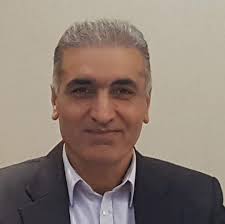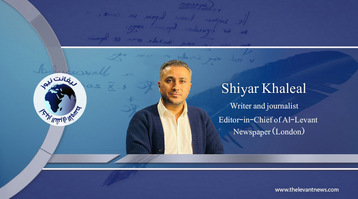-
Syrian conflict: Power-sharing or sectarian authoritarianism?

At first glance, the ongoing Syrian conflict presented and coded as an ethno-sectarian civil war moving towards a decisive military victory by Bashar Al-Assad's regime.
Such a conclusion is expressed by Syrian government officials emphasizing their intention to retain an absolute hold on power. The upcoming so-called 'presidential elections' on the 26th of May will definitely re-elect "re-appoints" Al-Assad which affirm the regime's view and intention. Consequently, it seems the Syrian experience of conflict confirms those power-sharing agreements are more likely when no side can prevail on the battlefield. However, the civil war is a proxy war with high levels of regional and international intervention, both state and non-state actors alike. As a result, Syrian territories have been divided into three regional governments- Russia, Iran and Hezbollah are backing the Syrian regime and have a direct stake in the terms on which Syria's conflict ends. Similarly, Turkey now occupies parts of northwest and northeast Syria, mainly the Kurdish areas, and has placed all of these occupied areas under the authority of the provincial governor of its own Turkish province. Whereas, the Kurdish areas in the northeast lead by the US-backed Syrian Democratic Forces (SDF).
Given these circumstances, the Syrian regime still attempts to reimpose its monopoly rule over a unified Syrian state on all country's territory and so far in the name of "national sovereignty". Despite its dependence on the Russian military and economic support, the regime has rejected UN resolution (2254) and still not responding, practically, to diplomatic efforts to achieve a negotiated settlement or tendency to share power. Simultaneously, Turkey-backed Syrian opposition seems is sharing the same views with the Assad's regime in terms of rejection of power-sharing or self-governance and call for a central state based on sectarian and Islamic ideology following Turkey's agendas first.
Throughout the Syrian conflict, both sides- Assad's regime and the opposition have been rejected any forms of power-sharing, and decentralization such as regional autonomy or federation that would protect country’s unity. They argue, such a system of power-sharing will threaten the state sovereignty and unity, and eventually so will divide the country, despite the fact that Syria has, in fact, been divided by internal and external actors.
Nevertheless, the Syrian conflict is not over, and there is still a chance for Syria to rule some kind of power‐sharing agreement. Therefore, Syria’s experience offers some insights into how non‐negotiated, imposed power‐sharing frameworks might emerge as the result of external intervention in the Syrian civil war. The international system is full of such hybrid forms of imposed power‐sharing that cannot be ruled out as possible features of an outcome in the Syrian case. The most common cases are imposed or de facto forms of power‐sharing, the Syrian conflict for example, in which external actors engage with local authorities directly, otherwise the country much more likely to face eventual division.
by: Zara Saleh

You May Also Like
Popular Posts
Caricature
Syrians' concerns now
- December 10, 2024
Syrians' concerns now #Syria
#Bashar_al-Assad
#Liberation_of_Syria
#Syrians
#Future_of_Syria
#Levant_News

opinion
Report
ads
Newsletter
Subscribe to our mailing list to get the new updates!



















